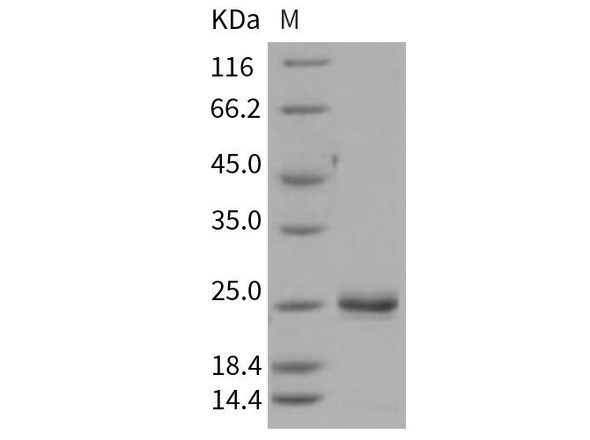| Background: | Lipocalin-2 (LCN2), also known as neutrophil gelatinase-associated lipocalin (NGAL), is a 25 kDa protein belonging to the lipocalin superfamily. It was initially found in activated neutrophils, however, many other cells, like kidney tubular cells, may produce NGAL in response to various insults. This protein is released from injured tubular cells after various damaging stimuli, is already known by nephrologists as one of the most promising biomarkers of incoming Acute Kidney Injury (AKI). Recent evidence also suggests its role as a biomarker in a variety of other renal and non-renal conditions. Moreover, recent studies seem to suggest a potential involvement of this factor also in the genesis and progression of chronic kidney diseases. NGAL is the first known mammalian protein which specifically binds organic molecules called siderophores, which are high-affinity iron chelators. NGAL, first known as an antibacterial factor of natural immunity, and an acute phase protein, is currently one of the most interesting and enigmatic proteins involved in the process of tumor development. acting as an intracellular iron carrier and protecting MMP9 from proteolytic degradation, NGAL has a clear pro-tumoral effect. In thyroid carcinomas, NGAL is strongly induced by NF-kB, an important factor involved both in tumor growth and in the link between chronic inflammation and neoplastic development. Thus, Lipocalin-2 (LCN2/NGAL) has been implicated in a variety of processes including cell differentiation, proliferation, survival and morphogenesis. |










